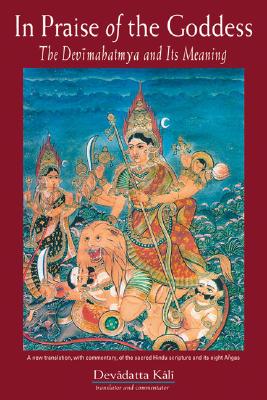
These questions and their answers form the substance of the Devimahatmya. Its narrative of a dispossessed king, a merchant betrayed by the family he loves, and a seer whose teaching leads beyond existential suffering sets the stage for a trilogy of myths concerning the all-powerful Divine Mother, Durga, and the fierce battles she wages against throngs of demonic foes. In these allegories, her adversaries represent our all-too-human impulses toward power, possessions, and pleasure. The battlefields symbolize the field of human consciousness on which our lives' dramas play out in joy and sorrow, in wisdom and folly.
The Devimahatmya speaks to us across the ages of the experiences and beliefs of our ancient ancestors. We sense their enchantment at nature's bounty and their terror before its destructive fury, their recognition of the good and evil in the human heart, and their understanding that everything in our experience is the expression of a greater reality, personified as the Divine Mother.







